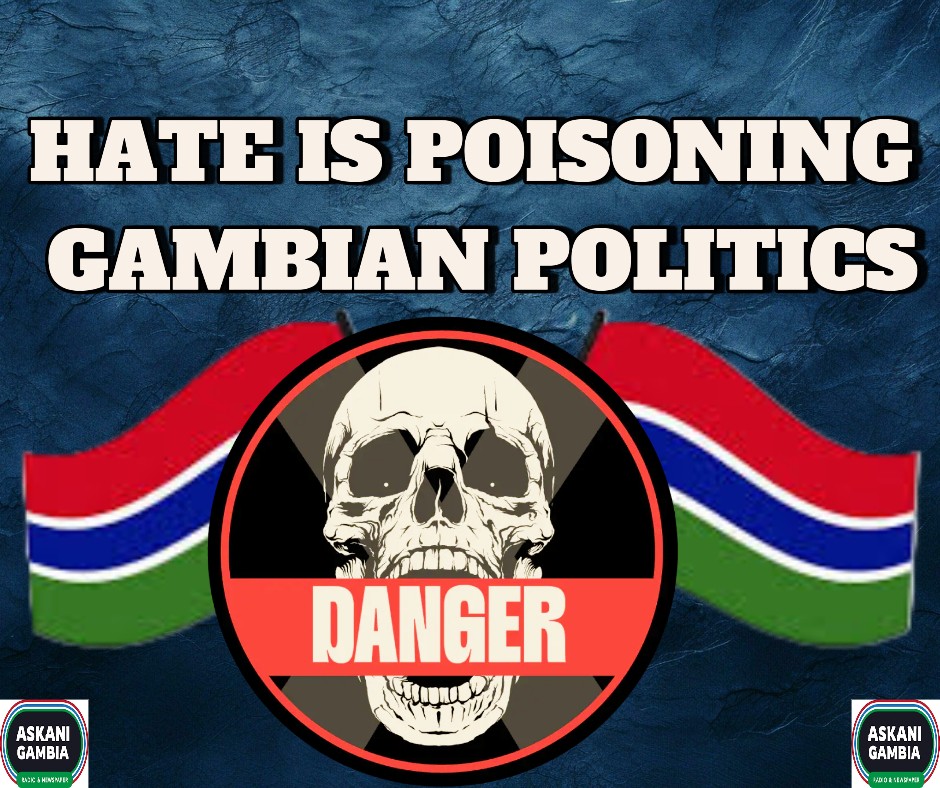
In recent years, our political arena has become increasingly polluted with the language of hate, insult, and dehumanization. Since the National Human Rights Commission released its hate speech survey this year, one does not need to look far to see how deeply this cancer has eaten into our political culture. From political platforms to social media timelines, the sounds of hate now dominate public discourse.
Politicians and their supporters have turned political competition into a theatre of abuse. Opponents are routinely called rats, vultures, betrayers, thieves, unbelievers, gays, destroyers, and ungratefuls. Others are labeled foreigners, tribalists, or troublemakers. We even hear expressions such as ‘Kereng Kafo’ meaning “an association of squirrels” to ridicule entire groups. These are not harmless words. They are the very embers of political violence. They degrade our humanity, corrode our democracy, and deepen social divisions.
What is most disturbing is that such behavior comes primarily from political leaders, the very people who should set the tone for tolerance and decency. When leaders caricature one another and question each other’s patriotism, they poison the minds of their followers. The result is an electorate divided not by ideas or visions for the country, but by anger, fear, and resentment.
Political opposition is the essence of multiparty democracy. Competing on ideas and policies, not insults, is what strengthens governance. Yet instead of debating issues, too many of our politicians have resorted to smearing, intimidating, and discrediting their opponents. This is not competition; it is corruption of the democratic process itself. It turns elections into character assassinations rather than a contest of visions for the nation.
Equally troubling is the silence of institutions that should know and do better. The Inter-Party Committee (IPC), the Independent Electoral Commission (IEC), and civil society organizations, particularly those focused on elections, have failed to respond decisively to this toxic environment. Their silence is not neutrality; it is complicity. By ignoring hate speech and disinformation, they normalize intolerance and undermine the foundations of peaceful democratic engagement.
Every week, investigative media outlets like Malagen, The Republic, and Askanwi and factcheck centres like InfoChecked expose cases of hate speech and disinformation circulating in our political discourse. Yet there is no accountability. No party reprimands its members beyond issuing a mere public statement. No leader apologizes. No institution intervenes. Instead, the flames of division are left to burn.
We cannot hope for peaceful elections when we refuse to confront the hate that fuels conflict. Democracy requires not only votes but also values such as respect, truth, and tolerance. Politicians must debate without demeaning, compete without contempt, and disagree without dehumanizing. Civil society, IPC and the IEC must also step up and ensure that hate speech is called out and sanctioned.
The Gambia has already endured decades of fear, division, and authoritarianism. We cannot afford to slide backward. Our democracy will not survive on prayers and slogans; it will survive only on the courage to demand decency and accountability in politics. Let us choose words that heal rather than harm, that unite rather than divide. The time to clean up our politics is now before the hate we tolerate today becomes the violence we regret tomorrow.
For The Gambia, Our Homeland.
By Madi Jobarteh.


